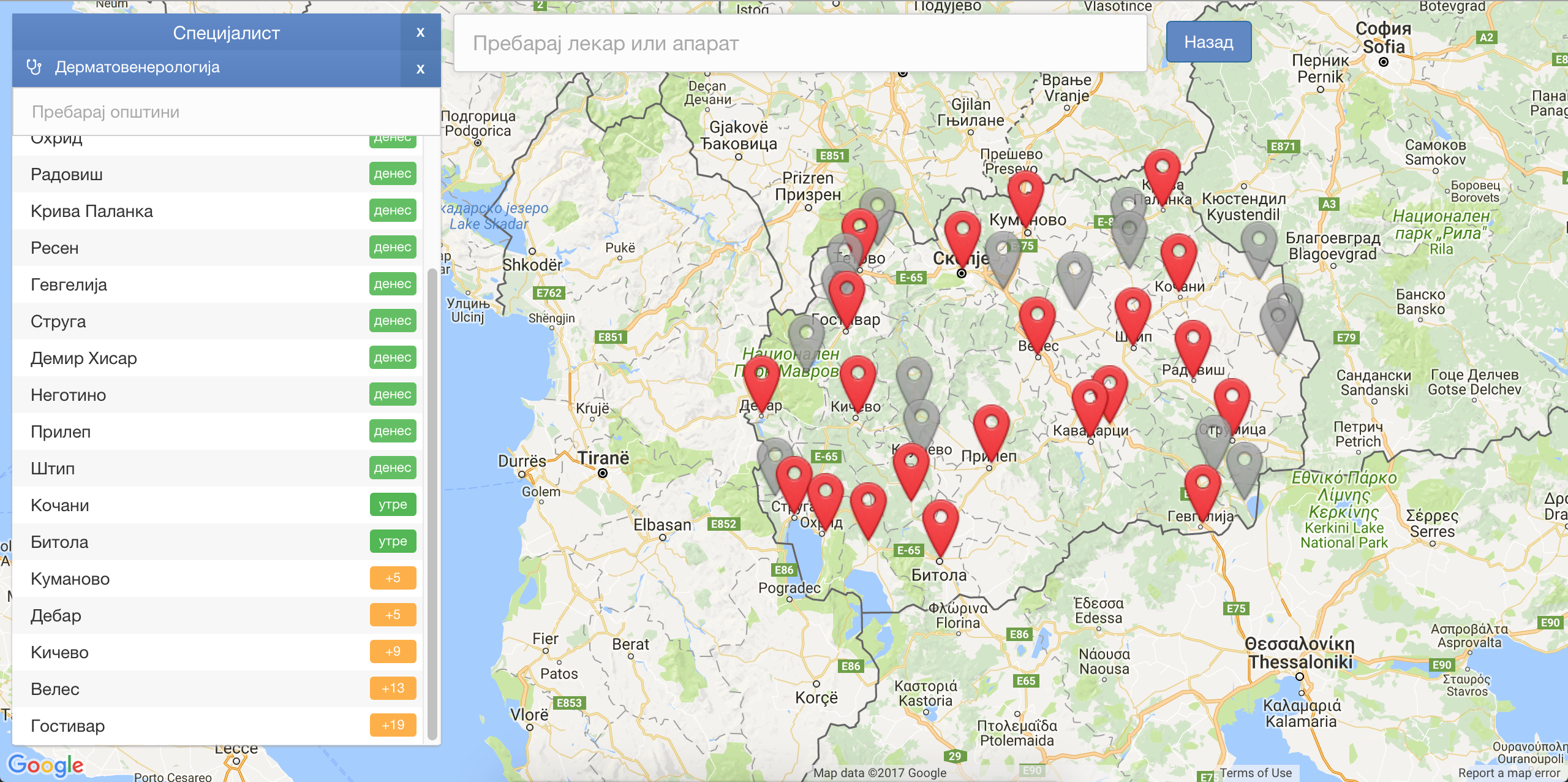Two Balkan nations have made astounding breakthroughs in eHealth, and the Aussie team behind the project wants to bring the technology here
It sounds too good to be true. In the space of just three years, a small country in eastern Europe successfully eliminated waiting times for specialist appointments.
In Macedonia, patients now have an average delay of one day to see a specialist.
At the heart of the transformation was an Australian-Macedonian technology partnership called Sorsix.
The company rolled out a national eHealth system in six months at a cost of less than $A3 million, Milan Arizankoski, the head of the e-Health Directorate in Macedonia, said.
Prior to the implementation of the e-booking system in 2013, patients could wait weeks, and in some cases up to 18 months, for specialist care.
The eHealth system, called Pinga, dramatically decreased waiting times by letting GPs see which specialists had the greatest availability.
GPs could pull up a list of the waiting times for every specialist in Macedonia and could book their patients an appointment directly into the specialist’s calendar.
“Once the system went in, a GP could book you in and know when to schedule a follow up,” Dalibor Frtunik, the head of Sorsix’s Australian division, told The Medical Republic.
Some GPs, specialists and hospitals continued to use their own software, but these systems were fully integrated with the national platform.
“There are more than 100 third-party software applications used by health providers in the Republic of Macedonia and these are all integrated, by law, with the system,” Mr Arizankoski said.
Sorsix also made specialist waiting times available to the public along with real-time data on appointments and prescriptions.
In the space of two years, Macedonia rose from 27th on the Euro Health Consumer Index, which measures the quality of European healthcare systems, to 16th in 2014, beating Spain, Greece, Ireland and Italy. This was the largest rise to be recorded in the history of the index, which began over a decade ago.
Professor Arne Björnberg, who facilitates the Index, attributed Macedonia’s “most remarkable advance” to its real-time e-booking system.
“There has not been any increase in beds or machinery,” Mr Frtunik said. “No doctors have been added. It’s literally just more efficient administration that has doubled the amount of care available at the specialist level.”
Not wanting to be outdone by its neighbour, the Serbian government put out a tender, selecting the bid from Sorsix, and deployed its eHealth platform last year.
“They had four or five failed projects before us. But we did it right. The entire national system was completed for under $A5 million,” Mr Frtunik said.
Following the introduction of Pinga, Serbia, which has a population of seven million, leapt from 30th to 24th place on the Euro Health Consumer Index.
“The concept that eHealth is going to take a long time is garbage,” said Mr Frutnik. “We did a country the size of NSW in six months. There is no reason that cannot be duplicated elsewhere.”
So if Macedonia, a country which had previously had the poorest healthcare system in Europe, could deploy a state-of-the-art eHealth system, surely Australia could do the same?
“What other countries are doing is an excellent model, if we let it be,” Grahame Grieve, an eHealth expert and the principal at Health Intersections, told The Medical Republic. “But, on the other hand, there is precisely zero chance that we would ever let that happen.”
The issue in Australia was that no-one has the authority to force people to collaborate, he said. The states being independently in control of separate health systems made it very difficult to reach agreement on a national approach.
Another issue was that Australia already had sunk considerable investment into eHealth technology, so it was difficult now to take an axe to the system, he said.
“The government has spent 15 years trying to build a half-coherent, half-useful medical records system,” Mr Grieve said. “In fact, they spent that time trying to build several of them, different ones, and it hasn’t got them anywhere. And it’s not because of technical factors.”
Mr Grieve said a culture of collaboration was essential to building a nationally interoperable eHealth platform. “Some countries have really favourable conditions to interoperability culturally, whereas other countries don’t,” he said. “So, I’m not holding my breath that will change anytime soon.”



